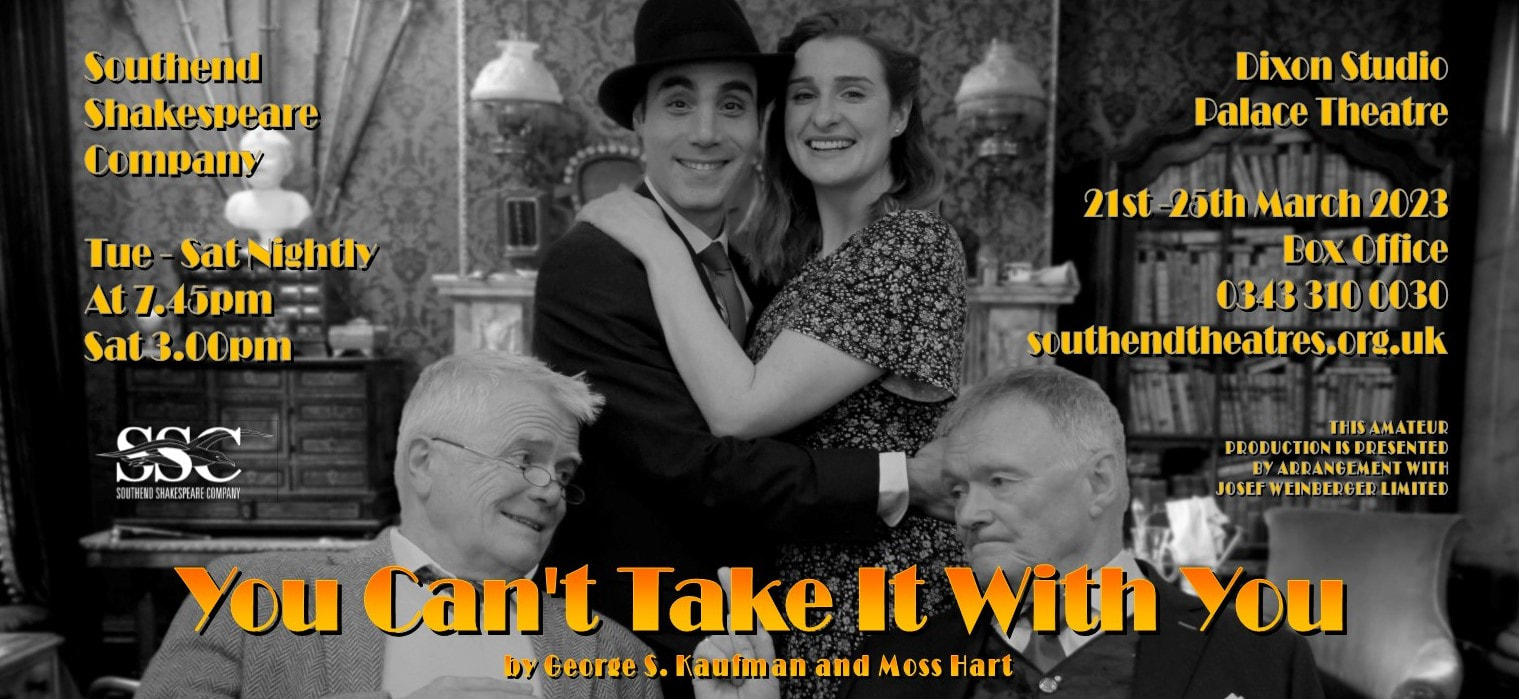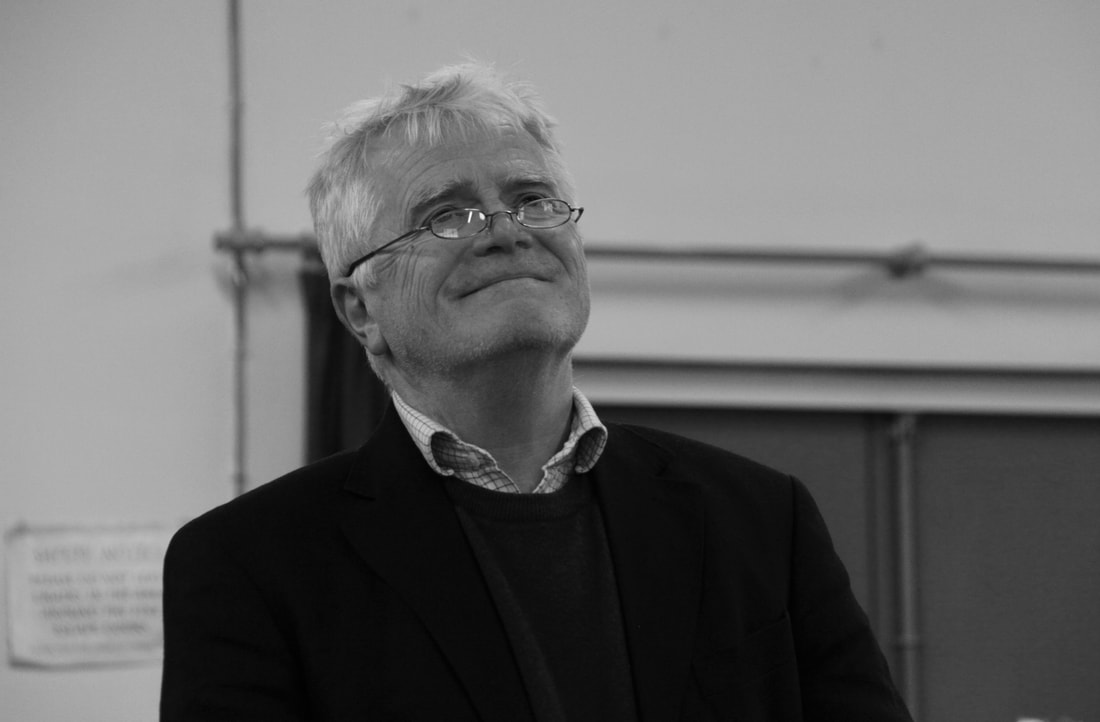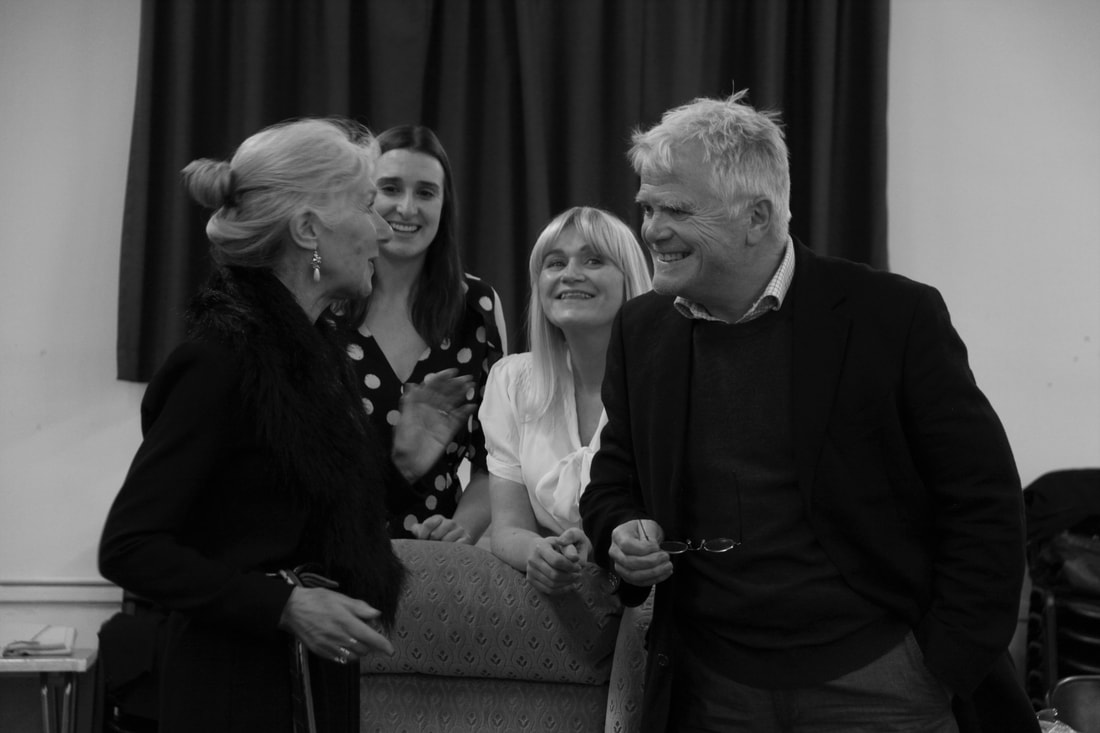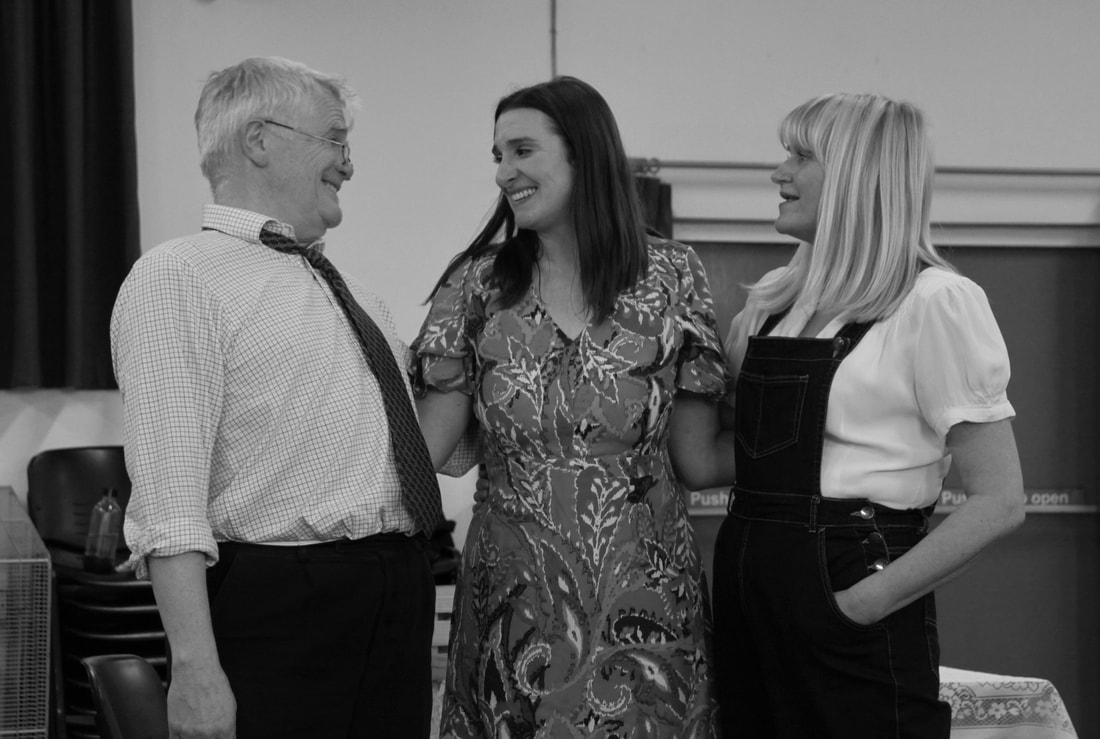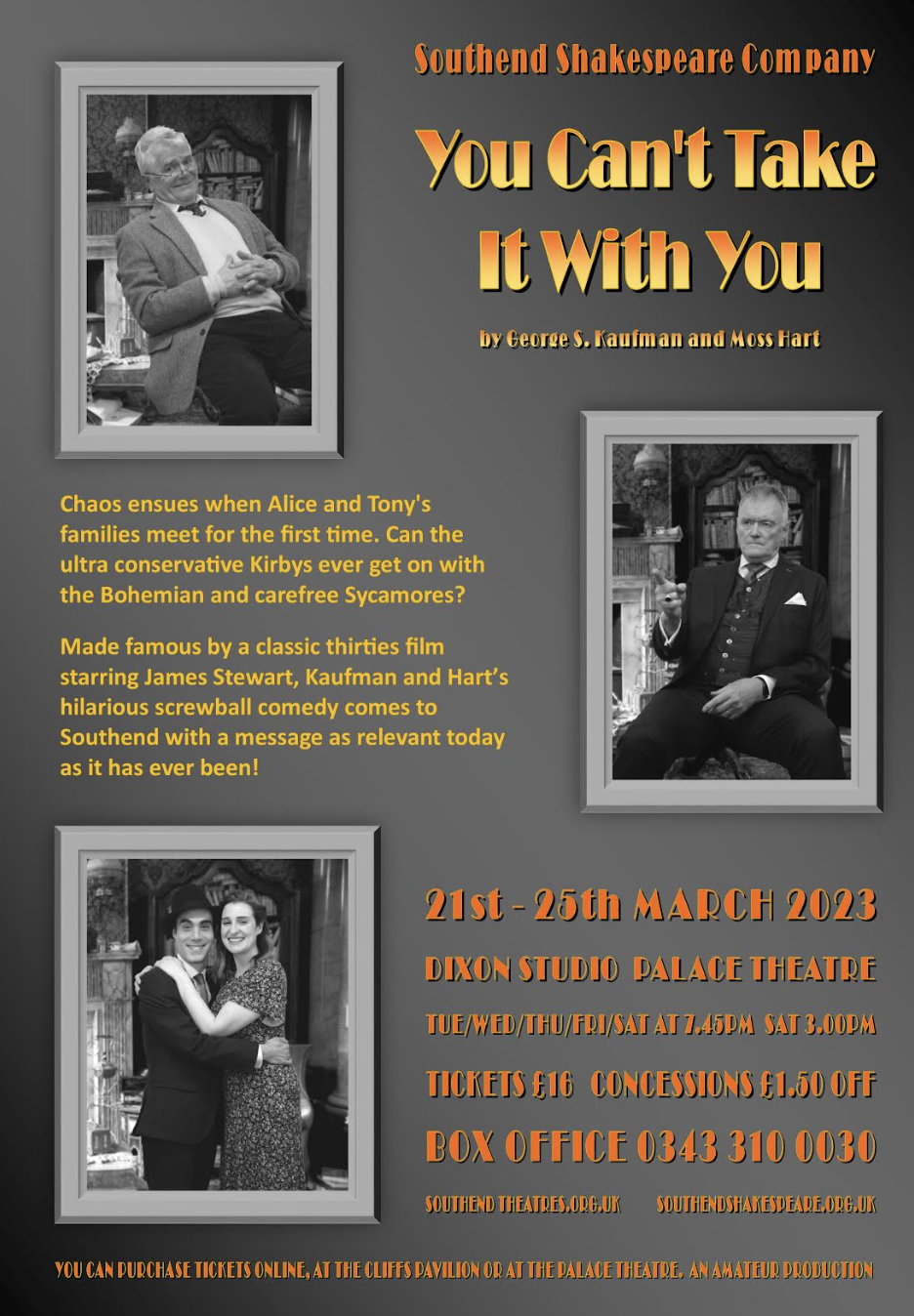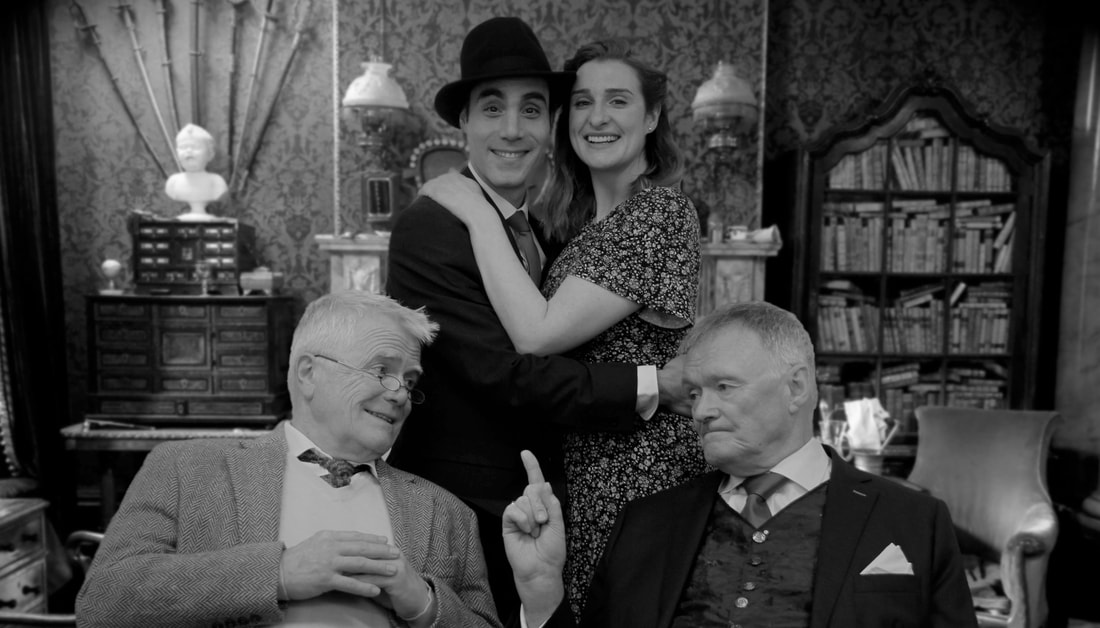Southend Shakespeare Company presents
YOU CAN’T TAKE IT WITH YOU
by George S. Kaufman & Moss Hart
Chaos ensues when Alice and Tony's families meet for the first time.
Can the ultra-conservative Kirbys ever get on with the Bohemian and carefree Sycamores?
Made famous by a classic thirties film starring James Stewart, Kaufman and Hart’s hilarious screwball comedy comes to Southend with a message as relevant today as it has ever been!
Dixon Studio, Palace Theatre
21st March – 25th March 2023
Tue/Wed/Thu/Fri/Sat at 7.45pm Sat Mat 3.00pm
£16.00 / Concs. £1.50 off
YOU CAN’T TAKE IT WITH YOU
by George S. Kaufman & Moss Hart
Chaos ensues when Alice and Tony's families meet for the first time.
Can the ultra-conservative Kirbys ever get on with the Bohemian and carefree Sycamores?
Made famous by a classic thirties film starring James Stewart, Kaufman and Hart’s hilarious screwball comedy comes to Southend with a message as relevant today as it has ever been!
Dixon Studio, Palace Theatre
21st March – 25th March 2023
Tue/Wed/Thu/Fri/Sat at 7.45pm Sat Mat 3.00pm
£16.00 / Concs. £1.50 off
CURTAIN CALL
with Ross Norman-Clarke, 71, of Leigh on Sea who plays the role of Grandpa
with Ross Norman-Clarke, 71, of Leigh on Sea who plays the role of Grandpa
When did you start to take an interest in theatre? Did you take part in any productions at school?
Never having previously tried my hand at theatricals, I first trod the boards in the winter of 1976, in a production of The Snow Queen, at a church hall in South London. It was a home-grown musical reinterpretation of the traditional fairy tale – sort of Hans Christian Anderson meets Guys and Dolls – and I played one of the sharp-suited mobster sidekicks of the crooked town mayor (called Nick de Rates!) What made me start? I suppose I was inveigled into it by the lady who was eventually to become my ex-wife.
Are or were any members of your immediate family involved in drama?
Not really – although my kid brother once claimed he was in a 3-minute version of War and Peace, while at Cambridge. Back in the late 1920s, my mother used to take friends to see one of her older sisters in shows, but she and the rest of them apparently only went along in the ghoulish hope that something would go wrong…
Have you done any sort of formal training for acting/singing/dancing?
Absolutely none whatsoever, and it probably shows. I’d like to say that I consciously modeled my acting style on somebody terribly famous, but in reality I just picked things up as I went along – like the rest of my bad habits, I suppose. As for singing, I apparently used to have a reasonably decent baritone voice, which I was told might benefit from professional training, but it never happened. Meanwhile, the less said about dancing, the better.
Do you have any specialist skills – anything from stilt walking to dress-making – which you work into your repertoire?
I used to do a little fire-eating at medieval fairs and suchlike down in Surrey. Ditto mind-reading, which I was sometimes called upon to perform at Victorian music-hall evenings. Sadly, there’s not much call for either in the SSC.
Which experience/role do you regard as the highlight of your amdram career to date?
What I enjoy most about theatre is the sense of shared purpose involved in putting a show together – the opportunity it gives to work pretty intensively over a period of two or three months with a group of good friends as a production gradually takes shape. The sense of camaraderie and achievement which this engenders means that my favourite show and/or role is generally the one I’m currently involved in! That is certainly true of You Can't Take It With You, which has been brilliant from day one. We’ve all really enjoyed ourselves, and I hope we succeed in communicating that to our audiences. That said, other highlights would have to include playing one of the village idiots in The Playboy of the Western World; Puck (which I played as the oldest and most cantankerous fairy in town); and Falstaff in The Merry Wives of Windsor. Not forgetting, of course, Canon Chasuble in The Importance of Being Earnest. According to some people, the last of these has provided the model for just about every other part I’ve played since! Oh, and very occasionally, I find myself required to act something other than the fool. Last year’s production of The Children basically called for just three characters on stage for virtually the whole of the play, and much to my own surprise (and quite a few other people’s, too), I really enjoyed it. Finally, I would mention The Beggar’s Opera. My sole excursion into directing, and I’m proud that it broke new ground for the SSC.
What has been your most embarrassing moment involving drama, on or off stage?
The one genuine catastrophe to which I can claim to have been the principal contributor occurred in a production of Romeo and Juliet, when I was playing the Duke. In the 40 minutes or so that elapsed each night between my first and second appearance (when I was supposed to banish Romeo after he kills Tybalt), I was in the habit of getting deep into conversation with another member of the cast, relying on the stage manager to come and give me a couple of pages’ notice. One night, however, thanks to an onstage mishap, the SM was otherwise engaged. The result was that I never got my two pages’ notice, the Duke never appeared, and Romeo never got banished. This was obviously hugely embarrassing for everyone on stage at the time – but fortunately, I wasn’t one of them. I like to think the audience didn’t notice.
How do you earn your living?
I am now retired, but I spent my entire career as a journalist/professional copywriter/PR consultant – the last 25 years or so as a freelancer.
Never having previously tried my hand at theatricals, I first trod the boards in the winter of 1976, in a production of The Snow Queen, at a church hall in South London. It was a home-grown musical reinterpretation of the traditional fairy tale – sort of Hans Christian Anderson meets Guys and Dolls – and I played one of the sharp-suited mobster sidekicks of the crooked town mayor (called Nick de Rates!) What made me start? I suppose I was inveigled into it by the lady who was eventually to become my ex-wife.
Are or were any members of your immediate family involved in drama?
Not really – although my kid brother once claimed he was in a 3-minute version of War and Peace, while at Cambridge. Back in the late 1920s, my mother used to take friends to see one of her older sisters in shows, but she and the rest of them apparently only went along in the ghoulish hope that something would go wrong…
Have you done any sort of formal training for acting/singing/dancing?
Absolutely none whatsoever, and it probably shows. I’d like to say that I consciously modeled my acting style on somebody terribly famous, but in reality I just picked things up as I went along – like the rest of my bad habits, I suppose. As for singing, I apparently used to have a reasonably decent baritone voice, which I was told might benefit from professional training, but it never happened. Meanwhile, the less said about dancing, the better.
Do you have any specialist skills – anything from stilt walking to dress-making – which you work into your repertoire?
I used to do a little fire-eating at medieval fairs and suchlike down in Surrey. Ditto mind-reading, which I was sometimes called upon to perform at Victorian music-hall evenings. Sadly, there’s not much call for either in the SSC.
Which experience/role do you regard as the highlight of your amdram career to date?
What I enjoy most about theatre is the sense of shared purpose involved in putting a show together – the opportunity it gives to work pretty intensively over a period of two or three months with a group of good friends as a production gradually takes shape. The sense of camaraderie and achievement which this engenders means that my favourite show and/or role is generally the one I’m currently involved in! That is certainly true of You Can't Take It With You, which has been brilliant from day one. We’ve all really enjoyed ourselves, and I hope we succeed in communicating that to our audiences. That said, other highlights would have to include playing one of the village idiots in The Playboy of the Western World; Puck (which I played as the oldest and most cantankerous fairy in town); and Falstaff in The Merry Wives of Windsor. Not forgetting, of course, Canon Chasuble in The Importance of Being Earnest. According to some people, the last of these has provided the model for just about every other part I’ve played since! Oh, and very occasionally, I find myself required to act something other than the fool. Last year’s production of The Children basically called for just three characters on stage for virtually the whole of the play, and much to my own surprise (and quite a few other people’s, too), I really enjoyed it. Finally, I would mention The Beggar’s Opera. My sole excursion into directing, and I’m proud that it broke new ground for the SSC.
What has been your most embarrassing moment involving drama, on or off stage?
The one genuine catastrophe to which I can claim to have been the principal contributor occurred in a production of Romeo and Juliet, when I was playing the Duke. In the 40 minutes or so that elapsed each night between my first and second appearance (when I was supposed to banish Romeo after he kills Tybalt), I was in the habit of getting deep into conversation with another member of the cast, relying on the stage manager to come and give me a couple of pages’ notice. One night, however, thanks to an onstage mishap, the SM was otherwise engaged. The result was that I never got my two pages’ notice, the Duke never appeared, and Romeo never got banished. This was obviously hugely embarrassing for everyone on stage at the time – but fortunately, I wasn’t one of them. I like to think the audience didn’t notice.
How do you earn your living?
I am now retired, but I spent my entire career as a journalist/professional copywriter/PR consultant – the last 25 years or so as a freelancer.
Following on from the previous question, has your theatre career ever been useful in your day job, and/or have you ever drawn on your day job for any of your stage activities?
I suppose that contriving to keep a straight face while spouting corporate nonsense in client meetings might be said to have helped me hone my acting skills – and perhaps vice versa too. Ironically, though, no amount of playacting in front of an audience ever reconciled me to giving presentations to senior management, which I always hated. But then, audiences don’t generally bombard you with searching questions after you’ve finished.
Are your friends mostly involved in theatre - perhaps even working with you on a regular basis - or do you socialise across a wider circle?
I’ve been involved in amateur drama on and off for nearly 50 years now, half of them with the SSC, so I can safely say that many if not most of my friends are currently involved in theatre too, or have been in the past. As I said before, the sense of camaraderie is a major part of the appeal. Nevertheless, I think it’s extremely important to have friends outside the amdrams bubble as well. After all, you’re not in plays all the time. So, for example, I also belong to a local yacht club, and I have other friends, both locally and further afield, who have nothing to do with theatre at all (and are therefore – relatively – normal!)
Which actor do you most admire and why?
All things considered, probably Ian McKellen. Can’t really say why, except that I’d quite like to be as good as him.
What role would you most like to play and why?
Any pantomime dame – and Lady Bracknell. Just because it would be a complete hoot. Aside from that, anything romantic opposite Emily Blunt, Penelope Cruz or Marion Cotillard.
I suppose that contriving to keep a straight face while spouting corporate nonsense in client meetings might be said to have helped me hone my acting skills – and perhaps vice versa too. Ironically, though, no amount of playacting in front of an audience ever reconciled me to giving presentations to senior management, which I always hated. But then, audiences don’t generally bombard you with searching questions after you’ve finished.
Are your friends mostly involved in theatre - perhaps even working with you on a regular basis - or do you socialise across a wider circle?
I’ve been involved in amateur drama on and off for nearly 50 years now, half of them with the SSC, so I can safely say that many if not most of my friends are currently involved in theatre too, or have been in the past. As I said before, the sense of camaraderie is a major part of the appeal. Nevertheless, I think it’s extremely important to have friends outside the amdrams bubble as well. After all, you’re not in plays all the time. So, for example, I also belong to a local yacht club, and I have other friends, both locally and further afield, who have nothing to do with theatre at all (and are therefore – relatively – normal!)
Which actor do you most admire and why?
All things considered, probably Ian McKellen. Can’t really say why, except that I’d quite like to be as good as him.
What role would you most like to play and why?
Any pantomime dame – and Lady Bracknell. Just because it would be a complete hoot. Aside from that, anything romantic opposite Emily Blunt, Penelope Cruz or Marion Cotillard.
Ever corpsed on stage? What happened?
I’ve certainly dried more times than I care to remember, but to the best of my recollection I have never corpsed. Wish I had. It’s the sort of thing audiences love.
Tell us a bit about your part in "You Can’t Take It with You"
I play Grandpa, the head of this loving but wonderfully eccentric New York family, in which everyone just does their own thing without any thought for the boring realities of life, like Income Tax. One day, thirty five years ago, I suddenly just gave up a promising Wall Street career, in order to spend my time pursuing hobbies like snake-hunting, going to the zoo, and attending college graduation ceremonies to which I’m not actually invited.
Any plans for the future, after "You Can’t Take It with You”?
A good rest, then I might think about auditioning for something in the autumn.
Any tricks for remembering your lines or other useful tips to pass on to others involved in drama?
The man or woman (or whatever) who devises a foolproof method for learning lines will earn the undying affection and respect of all actors, both am and pro. There are no infallible tricks or short cuts – you simply have to work at it. As for tips – I really don’t think anyone wants more people acting like me!
I’ve certainly dried more times than I care to remember, but to the best of my recollection I have never corpsed. Wish I had. It’s the sort of thing audiences love.
Tell us a bit about your part in "You Can’t Take It with You"
I play Grandpa, the head of this loving but wonderfully eccentric New York family, in which everyone just does their own thing without any thought for the boring realities of life, like Income Tax. One day, thirty five years ago, I suddenly just gave up a promising Wall Street career, in order to spend my time pursuing hobbies like snake-hunting, going to the zoo, and attending college graduation ceremonies to which I’m not actually invited.
Any plans for the future, after "You Can’t Take It with You”?
A good rest, then I might think about auditioning for something in the autumn.
Any tricks for remembering your lines or other useful tips to pass on to others involved in drama?
The man or woman (or whatever) who devises a foolproof method for learning lines will earn the undying affection and respect of all actors, both am and pro. There are no infallible tricks or short cuts – you simply have to work at it. As for tips – I really don’t think anyone wants more people acting like me!
|
Cast & Backstage Crew
|
For more information about the SSC visit our website at
southendshakespeare.org.uk
Facebook
Instagram
Twitter
southendshakespeare.org.uk
